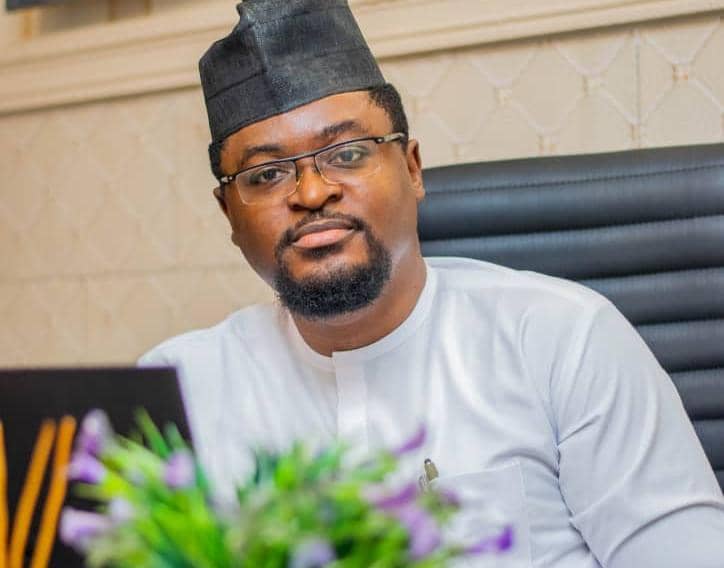Sustaining the stimulus of hope, by Fredrick Nwabufo Newsdiaryonline

It has been 30 days of the Bola Tinubu administration, and it has been a bustling and eventful one. President Tinubu has rightfully earned the ticket “Baba-go-fast” for the decisiveness, punctiliousness, diligence, and swiftness of his leadership. The past 30 days have been motion, movement, and acceleration. Good things happen when governance runs on the stimulus of hope.
“Hitting the ground running” has a walking and talking example in the President.
Upon assumption of office, he did the derring-do — axing petrol subsidy; averting a national strike and giving the naira the muscle to find its fortune in the agora of trade.
According to JP Morgan, a US financial services firm, the naira is expected to appreciate, and trade at N600 to the dollar over the coming months.
The firm said: “While it will take a few days for USD/NGN spot to settle, we fully expect an initial overshoot towards the parallel market rate of -750 or higher, after which, we expect USD/NGN to settle in the high 600s over [the] coming months.”
Bloomberg, an international news agency, reported that investors were excited about Nigeria owing to the president’s swift reforms. It also reported that Nigeria’s equity market witnessed a boom — a corollary of the incipient policies, signalling a return of confidence in the market.
Reuters reported that investors were stunned by the quick reforms of the President. Reuters reports: “Nigeria’s new president, in office, for less than a month, is pushing to put Africa’s largest economy on a reform track that investors have eyed for decades, fuelling excitement that money could flow to the nation that many had deemed uninvestible.”
Governance is not rocket-science after all. It takes courage. Audacity. Diligence. Purpose. And forthrightness. Bold decisions take bold leadership.
The President signed four seminal bills into law. The bill harmonising retirement age for judges and stipulating uniformity in pension rights for judicial officers; The Electricity Act which effectively decentralises power, empowering states, companies, and individuals to generate, transmit and distribute electricity; The Student Loan Act which allows students in tertiary institutions access to interest-free loans from the Nigerian Education Loan Fund, and The Data Protection Law which protects the privacy and liberties of citizens.
The President made some critical appointments as well. He appointed service chiefs cognising Nigeria’s diversity and geopolitical balance. He appointed Mallam Nuhu Ribadu as National Security Adviser; Maj. Gen. C.G Musa as Chief of Defence Staff; Maj. T. A Lagbaja as Chief of Army Staff; Rear Admiral E. A Ogalla as Chief of Naval Staff’; AVM H.B Abubakar as Chief of Air Staff’; DIG Kayode Egbetokun as Acting Inspector-General of Police; Maj. Gen. EPA Undiandeye as Chief of Defence Intelligence.
This clearly manifests sensitivity and attunement to the complexities of Nigeria’s unity.
In the past month, the President attended the New Global Financing Pact Summit in France where he made firm and bold declarations. He said his ongoing reforms — removal of fuel subsidy and streamlining of exchange rate — would be sustained for a more competitive economy that would attract Foreign Direct Investment (FDI) into the country. The President warned that ignoring Nigeria, with its vibrant population and economy, would be perilous for the world.
The President also reaffirmed Africa as the centrepiece of Nigeria’s foreign policy. He said at a meeting with President Patrice Talon of Benin Republic: ‘’We are ready to improve relations. Africa has been the centrepiece of Nigeria’s foreign policy. I believe in Africa. We have the necessity to grow the continent. The world’s economy is wobbling, and Africa has been left behind. On risk factors, Africa is always placed high, with higher interest rates on borrowing. We are always classified as high risk. We must work together for systematic recovery and growth.”
Sustaining the current trajectory is, however, important. It is a fantastic start. ‘’Wailers’’ are becoming ‘’hailers’’; some ‘’Obidients’’ are becoming disobedient to their creed of vicious propaganda and malice, jumping ship, and supporting the government’s reforms. Citizens are buoyed by the clear direction of the government and the speed at which it is beginning to deliver on its promises.
The leadership has earned public trust and goodwill, which are not easy to come by for any government. Goodwill and public trust are sacrosanct and basic for driving plans and programmes; hence the leadership must work to keep it.
The sense of urgency to national matters, the mindfulness, the decisiveness, and the alacrity should be sustained.
The leadership should keep the arteries of communication alive, informing and educating citizens persistently on the essence of the reforms, and should keep dispelling misinformation and disinformation intelligently and aggressively when and where necessary.
It should guard against any form of complacency and should be pre-emptive about the possible exploitation of citizens’ concerns by some misanthropes for inordinate political tolls.
The leadership should remain thirsty and hungry for governance.
It is essential that the current steam of hope is sustained.
By Fredrick Nwabufo, Nwabufo aka Mr OneNigeria is a media executive.
Related

